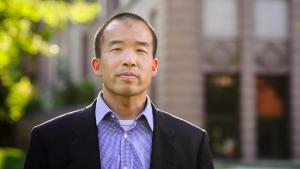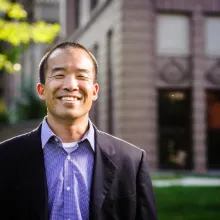InterVarsity Resolved to Pursue Justice and Reconciliation

The events of the past weeks are only the latest examples of a long history of racism in our country. At one level, they reveal nothing new. They tell stories that we are all too familiar with because they have been repeated for centuries. Christian Cooper facing a White woman making false accusations to the police. Ahmaud Arbery losing his life to White men who assumed they had the right to detain him by force. George Floyd dying while a police officer knelt on his neck––and while fellow officers watched. I’m grieving with my Black colleagues and friends because I know they are weary, frustrated, and despairing. I’m angry because I know that viral videos capture only a fraction of what happens daily. And I’m resolved that InterVarsity will continue to pursue justice and reconciliation on campus and in our spheres of influence.
InterVarsity unequivocally condemns racism and white supremacy. They, and all ideologies which promote the superiority of one people over another, are sinful––abhorred by God and condemned by Scripture. They deny Scripture’s affirmation of the equal value and dignity of all people who are created in God’s image.
InterVarsity reaffirms our commitment to the statement we published after the Charlottesville riots in 2017––denouncing these ideologies as anti-Scriptural, repenting and confessing, and adhering to accountability and action. I encourage you to re-read that statement today.
As President, I reiterate InterVarsity’s commitment to pray for and act toward a more robust biblical ministry of reconciliation and restoration. The documents which accompanied our Ethnic Reconciliation and Justice paper described several of the ways we have done this in recent years. As a fellowship with one-third of our staff and more than one-half of the core students in our campus ministry who are people of color, I am committed to pressing InterVarsity to more fully reflect biblical justice and reconciliation in the ways we minister together. I also know we have a long way to go. Our need for revival––individually, corporately, and nationally––is clearer than ever.
I also invite you, as you engage in this moment, to:
-
Mobilize your churches and networks to pray.
The sin of racism and white supremacy cannot be defeated without God’s intervention and the Holy Spirit’s conviction. It depends on Jesus’ triumph over the powers and principalities at the cross. It requires the whole church to fast and to pray. It is an irreducibly spiritual battle.
-
Stand together and demonstrate solidarity with communities of color among students and faculty.
True healing will not come unless Christ-followers join together in Christ-centered solidarity. This is part of what it means to be reconciled with Christ. Just as Christ identified with us, we now identify with others as one body and one household. Solidarity is a privilege we’re given, to walk with brothers and sisters who are hurting or dying. It is part of God’s invitation in mission, whether we identify with majority world communities being killed for their faith or for domestic communities killed for the color of their skin.
-
Learn intentionally and continually, and invite others to learn with you.
This is a spiritual battle that manifests sociologically, economically, politically, theologically, psychologically, and physically. I am grateful for the IVP books and InterVarsity resources, such as our paper on Ethnic Reconciliation and Justice. They help us understand the complex issues––and potential solutions––with more clarity and humility. We need more insight than the latest social media post can provide. We are a Christian mission to the university world, and our prayers, thoughts, and actions should thoroughly reflect the deepest Scriptural reflection and academic insight we can offer.
-
Take action.
Thoughts and prayers should move us to action. Stay attentive to the Holy Spirit’s prompting. Advocate in ways which show that Jesus both condemned injustice and blessed peace makers. Work in ways which resonate with God’s calling in your sphere of influence. Extend grace to those whose calling may differ from your own. Observe the sabbath because it is a long-term battle, and exhaustion makes us vulnerable to cynicism and sin.
Like you, I’m tired, angry, and hurting. And I am resolute: We will proclaim Jesus’ rejection of racism. We will trust in Jesus’ triumph over the principalities and powers behind it. And we will work to demonstrate that triumph until it is manifest to everyone and experienced by everyone.
Lord, grant us your grace and mercy.




